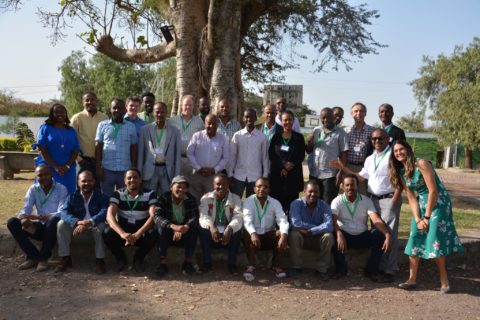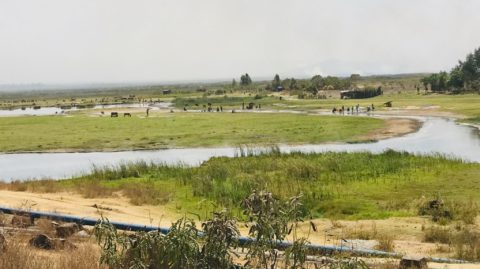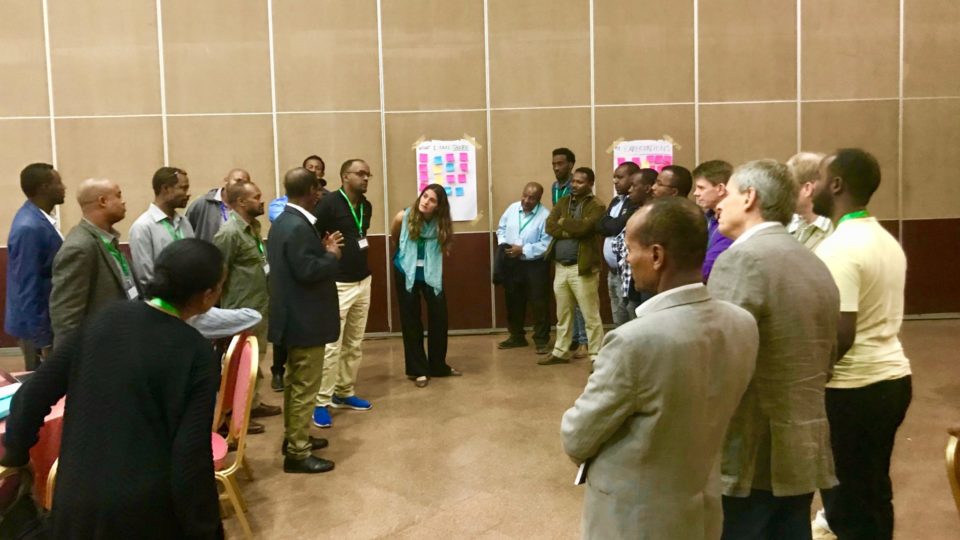The productivity and sustainability of natural systems, including wetlands, is increasingly being challenged by a multitude of natural and anthropogenically-induced changes and rising hazards — extreme weather, growing frequency of droughts, floods and fires, crop failures and so forth. These change s, coupled with inappropriate development interventions, rising demographic changes, resource competitions, and misguided policies are increasingly threatening the productivity and sustainability of fragile ecosystems and worsening the livelihoods and food and nutrition security situations of millions of natural resource dependent people around the World.
In spite of these growing challenges, existing interventions fall short of addressing the underlying drivers of vulnerability and degradation wetlands and other fragile ecosystems. Multiple and competing resource-use interests are further aggravating the degradation of those critical ecosystems. Conventional approaches for addressing equity and sustainability concerns in the management and sustainable utilization of critical ecosystems such as wetlands fail to achieve and maintain stakeholder consensus on long-lasting agreements that maximize joint gains for all stakeholders. Mutual gains Approach (MGA) is a negotiation approach which help to ensure the transparency, credibility and ultimate acceptability of decisions through the proactive involvement of all stakeholders to create and distribute value through objectively set and agreed criteria. The focus of this approach is on building trusted relationships and meeting stakeholders interests in a just and amicable way.
Given the above context, Wetland International, in collaboration with Sustainability Challenge Foundation (SCF) facilitated a week-long intensive training on MGA for Wetland International Global, Regional and National Staffs and its Partners. The training was organized in Ethiopia for Wetland International Ethiopia Staff and for its Government, NGO, the private sector and community Partners. The training was organized in Hawassa town in the Central Rift Valley of Ethiopia from 21-27 January 2019. The week-long intensive training was facilitated by experienced faculty members of the Sustainability Challenge Foundation (SCF) based on their successful “Regional Program on the Management of Sustainability (RPMS)’ in collaboration with Wetland International’s Global Office, East African Regional Office and the Ethiopian National Office.

Participants from the training
This training was designed to help participants acquire key skills for stakeholder engagement and negotiations, using the Mutual Gains Approach, to support their efforts to better secure biodiversity conservation and wise use of wetlands while contributing to a better, more sustainable world for people and nature. The participants learned fast hand a clear and useful framework of principles, strategies, and tools that integrate these skill sets through a carefully designed series of presentations, discussions, simulations and exercises. One of the tool for the training was the effective engagement of (multiple) stakeholders in a landscape approach, where various interests need to be brought together (negotiated), e.g. to negotiate agreements, initiatives and partnerships that deliver economic, environmental and social benefits. The participants also visited Chileleka wetland in Hawassa zuruia Woreda, to discuss issues around the wetland that are threatening its management; the role of negotiation and the benefit of multi-stakeholder dialogue.

Chileleka wetland in Hawassa zuruia Woreda, Ethiopia
A total of 23 participants drawn from Patners for Resilience country team, local implementing partners, allies Civil Society Organisations/networks, the private sector and relevant government officials at the regional, basin and national levels were trained. Towards the end of the training, participants developed clinic cases to demonstrate implementation of the MGA approach in their own respective contexts. Participants also indicated a high level of satisfaction demonstrating the high value and timeliness of the MGA training to resolving multiple resource-based conflicts in a fairer and sustainable way. Experiences/ lessons drawn from this training will be shared to other PfR countries in Africa and Asia and Latin America.

